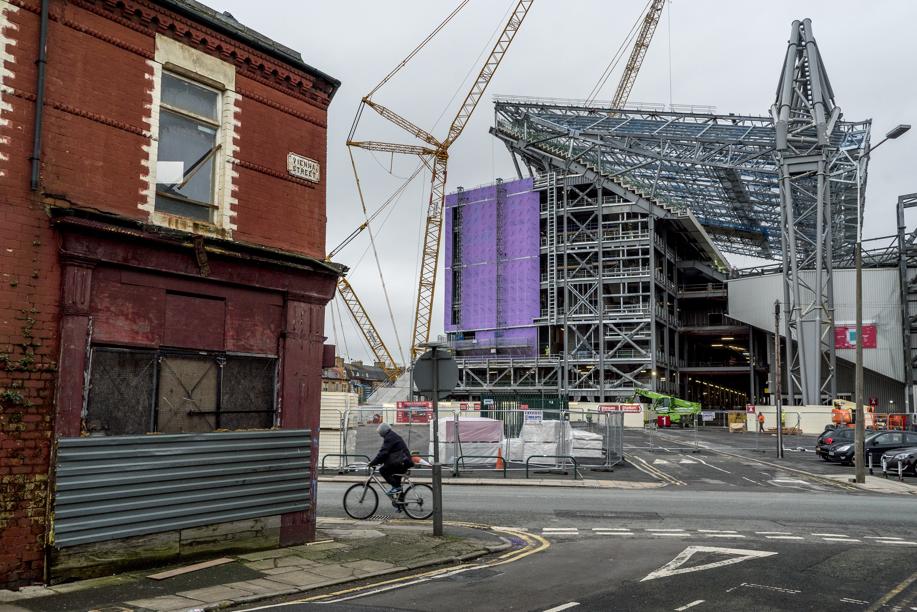
LIVERPOOL — London churns out so much wealth that its annual economic output is equal to Saudi Arabia’s. No other city in Britain comes close.
It has eight times the population of the country’s second-largest city, Birmingham, and 18 times that of Liverpool, which once flourished as the most important trading hub of the British Empire.
Now, the British government is scrambling to link cities like Liverpool and Manchester to counteract London’s ever-growing dominance and correct a growing imbalance that many say is unhealthy for Britain’s economy.
“There are no second-tier cities like in other European countries,’’ said Max Steinberg, who founded the International Festival for Business in Liverpool. “After London, it drops straight to third-tier cities, and London is a different beast altogether.’’
Under a “Northern Powerhouse’’ plan led by George Osborne, the chancellor of the Exchequer, the government has pledged to build more roads and railways, invest in technology and research hubs, and even appeal to China’s development bank for funds.
The central government also passed a law last month granting cities new powers on taxes and spending, as well as the freedom to elect their own mayors.
There is only one catch to these new policies: With public spending cuts initiated to reduce the national deficit, the amount of money transferred from the central government is fast dwindling. Decades-long local rejuvenation efforts in cities like Liverpool, which have attracted private investment, created jobs and stemmed a brain drain to London, are at risk of being undermined.
“We’re doing all we can, but the government is just hellbent on reducing funding,’’ said Joe Anderson, the mayor of Liverpool and a candidate for the city’s first so-called metro mayor, with expanded authority over six extra boroughs.
Anderson supports devolution and self-sufficiency, he said in an interview, but the government’s austerity program is undermining efforts to build new businesses and retain investment. The city has lost 58 percent of public funding since 2010, he said.
Anderson said that the government’s investment in transport, skills, jobs, and culture in the south was more than 12 times what the north receives. London and the southern region have built-in advantages that make them more resilient to austerity, he said, while Liverpool is still fighting social deprivation and is less able to withstand government cuts.
“We never started on a level playing field,’’ Anderson said, and catching up with the south is going to take time. “It’s not like flicking a light on.’’
Like Anderson, most people in Liverpool welcome the government’s recent interest in the north, but say it continues to lavish attention on the south. London alone contributes 24.5 percent of Britain’s economic activity, measured as gross value added, compared with just 13.3 percent for the entire north, according to the Centre for Cities, an urban policy research group.
The government has pledged about $19 billion in infrastructure spending and about $653 million worth of funding in scientific and computing research centers in and around Manchester.
Osborne is betting his political career on his “Northern Powerhouse’’ plan. Part of his vision is to complete a high-speed rail link connecting London, Birmingham, Leeds, and Manchester, with another possible connection between Liverpool and Hull.
In spite of the grand vision, at the current pace of investments, the gap between north and south will not be closed anytime soon.
Cities like Liverpool have until now made strong efforts to close that divide, and mostly, residents insist, on their own initiative.
“Liverpool has got better at doing things for itself,’’ said Kevin McManus, an investment manager at Invest Liverpool, who in 2009 set up Baltic Creative, a hub for small digital companies that was partly funded by the European Union.
The city is doing everything it can to attract new people, not least by the lure of cheap rent — some houses in the derelict Kensington ward are being sold for 1 pound each, about $1.50.
Some of the effort has paid off. Liverpool’s population of around 466,000 has risen for the first time since World War II, said Paul Johnston, a spokesman for the mayor.
David Pichilingi runs Liverpool Sound City, an annual music festival now also regularly staged in China, the United Arab Emirates and South Korea.
“Everything that devolves power from London is a good thing,’’ Pichilingi said. “Part of our mission is to give confidence to young people that you don’t need to go to London anymore.’’


 PREVIOUS ARTICLE
PREVIOUS ARTICLE